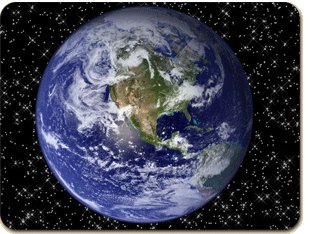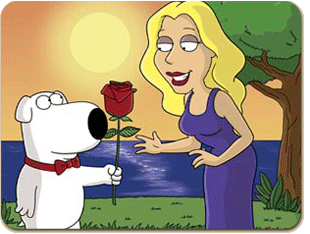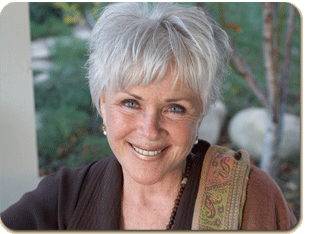|
July Newsletter: "How Did I Get Here?"
“Without love, we cannot find happiness in money, fame, possessions, or success.”
- Amma (The Hugging Saint)
And you may ask yourself, “What is that beautiful house?”
And you may ask yourself, “Where does that highway go to?”
And you may ask yourself, “Am I right? Am I wrong?”
And you may say to yourself, “My God, what have I done?”
Listen to the entire song:
If you do not see the player, you are probably on a mobile device.
To see the player, you need to be viewing it through Firefox or Safari.
Or, here, watch it on YouTube
Once in a Lifetime
Here we are in July, and an inordinately long time has passed between newsletters. I have been distracted. The reason? I find myself quite squarely at the end of my marriage. The Talking Heads song seems to be on repeat in the jukebox in my head, and I find myself looking around and thinking, “How did I get here?” It sure as hell was not what I meant when on September 28th, 2002, I said, “I do.”
“I do”
Marriage and long-term relationships are a road well-travelled by many of us. Based on my track record, I would identify myself as a serial-monogomist. So there I was on September 28 thinking I was signing up for the mother of all relationships now and forever, amen, yet here I sit knowing only of the impermanence of things. Hindsite is 20/20. From this perspective it is easy to identify the clues, or red flags, that popped up along the way vying for my attention wanting me to know a change of attitude or behaviour was required for the relationship to really work and stay on course, or even marry in the first place. But when we are so emerged in our own needs and longings we are blind, a bit deaf, and very often dumb (in both senses of the word).
There are greater forces at play too. Over the past five years I have been told by various teachers, either directly or through literature, that the energy of the planet, also a spiritual being, is speeding up as she travels her own kind of spiritual journey. Much like fleas on a running dog, we are carried along with it, our own energy influenced by it. One of the ways this manifests in our daily lives is that relationships are shorter and more intense*: It no longer takes 20 years of playing the game and learning your lessons together –it can take only a few years, or as little as days, or even hours. I am mentioning this so that if your situation is calling for it, you can give yourself permission to let go and move on and try something new.
 Planet Earth
Whether we’re at the mercy of the earth’s journey or our own fallibility, break ups are painful. When relationships end, a grieving period begins and with it a gob smacking sense of loss. For some, it is much easier (or safer) to go the ‘You are dead to me’ route, but however you play it, whether you are the leave-er or the leave-ee, you inevitably ask yourself, “How do I live without them?” Which really means, “Who am I without them?”
No longer ‘we’, you are simply ‘me’. One of the first responses usually is, “Crap! I’m alone!” Without the support of a partner, it is natural to feel like a rudderless ship without purpose or destination. There is a feeling of emptiness like something is missing. As a result, after a break up, it is normal to avoid being alone or with nothing to do. For me, Monday nights is Bachelorette night with my dear friend Melissa. With Portonic in hand, we sit side-by-side watching the latest DVRed episode.
“Red flag!” We yell out with smug confidence when we see cute little Jillian ignore the fact that her Bachelor leans away when she leans in, or says the 'wrong' thing.
Un-versed in the ins and outs of reality TV, anthropologically speaking, it’s pretty fascinating. Here is a show created entirely around society’s perception that one cannot be complete (and therefore happy) unless partnered. The nagging need a lot of people feel to find the missing piece, our soulmate, is epitomized in every rose the Bachelorette hands out.

Rose Ceremony: Bachelorette Chooses
Indeed, why is it that in our culture, when outside of a loving relationship, we feel so incomplete?
New age spiritualists say that this feeling of incompleteness is a soul level feeling resulting from our perceived separation from Source energy. The joy one feels when in love mimics the joy experienced when we remember what it was like to be one with Source energy. We feel empowered. We feel powerful. We feel the support of the universe. We feel we can do anything.
Deepak Chopra
Deepak Chopra suggests a less esoteric explanation. He says, “When you fall in love, you fall for a mirror of your own most present needs.” Being fundamentally self-serving creatures, our primary objective is to get our needs met. When our needs are met, we feel good, fulfilled and complete. On the flipside, when our primary needs are no longer being met, we fall out of love. Exploring this idea further, it also explains why we are at risk of choosing people who are not necessarily good for us but who meet the loudest need. This too is why we sometimes find ourselves in relationships with people the exact opposite of the person we were in love with just before; e.g., our first love was the life of the party, and the next is reserved and quiet. It is a matter of a new perceived need rising to the surface replacing the old one (because either the first need has been successfully met or wasn’t met at all). Too painful to deal with right away, it is suppressed to resurface at a later date when the replacement need has been met or likewise suppressed.
I was nineteen when a similar idea occurred to me. I was at the end of a 2-year relationship that met my need for financial security, but was otherwise boring and unfulfilling. Too immature to have the courage to break the relationship off in a direct way, I allowed myself to fall for tv-handsome John McCoy† who I met in Philosophy class. He was flirty and fun. We skipped classes, zipped around Sydney in his yellow Renault, sipping $2 cappuccinos at Italian café’s and spending the afternoons in his father’s flat in Potts Point. I loved the way he looked at me, spoke to me and treated me. I realized that while I liked him well enough, what I really liked was who I was when I was with him. Falling in love offers us an opportunity to fall in love with ourselves, (or at the very least like ourselves better). What we are truly enamored with is the reflection of ourselves mirrored in the other person.
We can see this in all relationships, not just intimate ones. Notice in your own life how different people bring out different aspects of yourself. This is how the Bachelorette could be attracted to multiple men at the same time. We are most at home with, and love openly, the people who bring out the best in us. While friends and family we love reflect our social aspects, intimate relationships give us the opportunity to accept the sexual, sensual parts of ourselves as well. Through our partner’s enjoyment of us, our best parts are reflected back. In the end, it is really us we are learning to fall in love with.
 Byron Katie Byron Katie
Byron Katie puts both ideas together with this mind-bender: She says that no two people have ever met. What she means is that we can only know a person by the thoughts we think about them and the perceptions we have of them, and these are actually projections of who we think they are, or want them to be, based on our own needs. What this suggests is that our perception of how someone loves us, is based entirely on our own beliefs about ourselves. That is, when you meet someone, you are meeting yourself. This is a useful thing to keep in mind when you find your partner to be different to how you imagined them to be, or want them to be -you might actually be meeting them for the first time!
Can we feel whole and truly happy without an intimate relationship?
Yes! Of course! If we are open to learning and growing, our life experiences can teach us enough about ourselves that the self-directed, need-based mindset is replaced with a quiet confidence of one who knows what it is to love themselves. To love yourself is to be at peace with who and where you are, accepting every part of yourself –mental, emotional and physical, denying nothing. Loving yourself inevitably leads to happiness. The Dalai Lama would be someone who fits this description.
However, many of us are not that self-actualized. We need others to make us feel special (an ego-derived need) because we don't believe that we are, and so we continue looking outward to learn what is inward.
The more I share my story, the more I realise I am not alone in my experience so I have put together some tips on how to manage a break up. (These tips are useful for the coupled during domestic blow-outs too):
 |
Manage the panic! The sky is not falling. The world is not ending. You are not dead with worms in your head. Take nice long slow deep breaths, look around remember where you are and who you are.
|
 |
Feel the emotions: The most unproductive thing you can do is deny your feelings. You will go through the gambit: sadness, fear, anger, anxiety, guilt, resentment etc. Get them out: Write a letter (no need to send it), punch a pillow, yell and scream, cry on your own, cry with friends, talk about it with friends or a professional. The only rule is to not hurt anyone in the expression of it.
|
 |
Rely on Friends and Family: Talk, and cry (and drink if you are so inclined) with them. Let them love you. You can learn to love yourself through your friends too.
|
 |
Give Yourself Permission to Let Go: If the other person clearly does not want to be with you, or you clearly do not want to be with the other person, give yourself permission to end a relationship that no longer serves your highest good. Let go of the need to be right making the other person wrong. Be direct in your communication and be consistent. Know what you want. Also give yourself permission to let go of material things. There was a time when you didn't have them in the first place.
|
 |
Identify Red Flags: This is useful for those of you in relationships too. Red flags are situations in which needs are not being met. Once you really know the relationship is over and you’re brave enough to go back over the course of the relationship, those buggers line that road with abundance. You ignored them at the time. Why? Because 1) it’s better than being alone, and 2) you really like the idea that the other person completes you (even if they don’t). Now it’s time to look at them because red flags tip you off as to what your needs are. You want to get honest with yourself so you can learn and grow and not repeat the story with someone new.
|
 |
Avoid the Rebound Relationship: You have just gone through an experience that activates your fear of being unlovable, so it is understandable that after a break up, the natural response is to look for someone who finds you attractive (and therefore loveable). However, you are more likely to succeed in a relationship that flourishes when you are not reverberating with the "please love me" vibe. Know who you are on your own first. Repeat to yourself: Everything I need is inside of me. (Ladies, you may need the right tools. Lads, you have two hands).
|
One more thought before I go:
"Love is not easy because you are not easy. Allow love to teach you about the inner terrain of your heart."
Namaste!
Andrea
*Other ways we experience the earth's evolution: Higher incidences of strokes and aneurisms, heart attacks, and degenerative diseases are in people as young
as thirty.
†Name changed to protect the innocent
|











